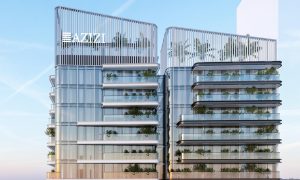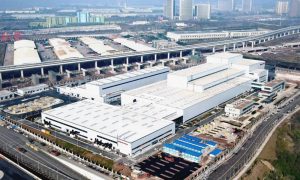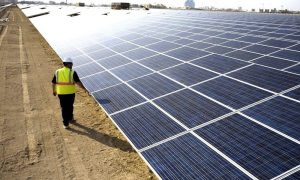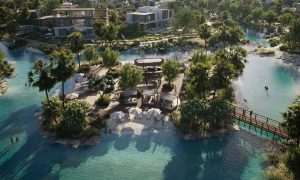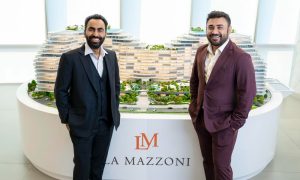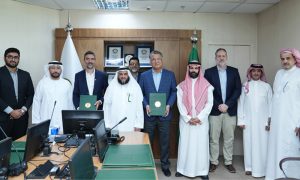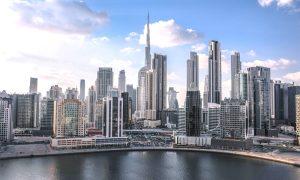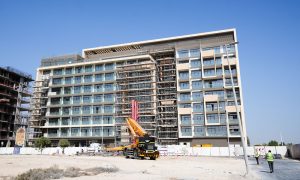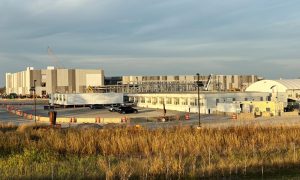Advocating for Nature-Based Solutions to Address Water Security
Jason Saundalkar speaks to Dake Rechsand CEO, Chandra Dake, about regional water security challenges, the impact of COP28 on water sustainability and game-changing nature-based solutions

Earlier in the year, at the 2023 United Nations Water Conference, the UAE Minister of Climate Change and the Environment, H.E. Mariam bint Mohammed Almheiri, discussed the UAE’s comprehensive and action-orientated approach towards water sustainability and its impact on the country’s security and economy-wide roadmap to achieve Net Zero emissions. She also confirmed that the 28th Conference of the Parties to the UN Framework Convention on Climate Change (COP28), which is scheduled to take place in Dubai later in the year, will place water security and sustainability front and centre on the global climate action agenda.
“We look forward to harnessing the positive momentum generated by the Water Action Decade, the UN 2023 Water Conference, and the Water Action Agenda when we welcome the world for COP28 in November,” she noted.
The focus on water sustainability and security is crucial as the Middle East and North Africa (MENA) region is one of the most water-scare regions in the world. A report published by the World Economic Forum in early 2023, said the following of the region: ‘For years, the water crisis has exacerbated conflict and political tensions. Moreover, the issue continues to significantly impact the health and wellbeing of people in the area, especially women and children. In fact, according to UNICEF, nearly 90% of children in the region live in areas of high or extremely high water stress.’
The upshot is the region’s governments are committed to addressing this critical challenge, with some already acting vigorously on their respective water-focused strategies to drive positive, sustainability-focused change.
Participation from the private sector on this issue is also growing and here, Big Project ME caught up with Chandra Dake, CEO of Dake Rechsand, who describes himself as an advocate of innovation and sustainability, with a focus on food security and water conservation.

As a company, Dake Rechsand is focused on sustainable technologies and nature-based solutions for carbon sequestration. The firm is said to have a VERRA-listed program and sets high standards for climate action and sustainable development. In recent years, it has developed several innovative solutions for water conservation and sustainable farming. In 2022, the firm launched a carbon sequestration program of 11m trees in the GCC region, which is listed on VERRA.
Discussing COP28 and the potential impact it may have on government policies in relation to construction practices and the usage/re-use of water in the region and beyond, Dake says, “COP28’s focus on water security is likely to influence global policies significantly. It’s anticipated to drive governments to reconsider their approach to construction practices by incorporating sustainability as a core principle. This implies fostering buildings and cities that are not only energy-efficient but also water-efficient.”
“The conference is expected to propel the concept of water reuse into the policy mainstream, encouraging practices like rainwater harvesting and greywater recycling. The emphasis on water security at such a high-profile event could also stimulate advancements in technology and innovation, leading to the development of new solutions for water conservation and management.”
Pressed for his thoughts on what he’d personally like to see come out of the global conference in terms of water security, he notes, “I’d like to see COP28 catalyse global commitment to holistic water management strategies. I hope it encourages policies favouring urban planning designs like Sponge Cities, which prioritise water conservation, efficient use, and reuse. Additionally, I’d like to see more funding for technological innovation in water security including water harvesting, recycling, and purification systems.”
“Finally, I believe the conference should emphasise educating the public about the importance of water security in the context of climate change, as informed communities are key to implementing and supporting these initiatives,” he continues.

Regional Water Challenges
The MENA region’s water-related challenges are the result of multiple drivers, some natural but many created by humans. The latter, while unfortunate, also means that definitive action could have a positive impact.
Sharing his thoughts on the challenges GCC governments and municipalities are grappling with, Dake notes, there are several issues including:
- Water scarcity: The GCC region, being predominantly arid, suffers from a chronic lack of freshwater sources. Water demand is high due to the rapid population growth, urbanisation and industrialisation
- Over-reliance on desalination and technological solutions: To overcome water scarcity, the GCC heavily relies on desalination and novel technologies like cloud seeding. While effective, these methods are energy-intensive, pose environmental challenges (such as brine disposal), and can lead to unintended consequences like excessive rainfall and flooding
- Water consumption: The per-capita water consumption in the GCC is one of the highest globally, driven by lifestyle practices and the need for excessive agricultural irrigation due to the arid climate
- Climate change and technological interventions: Rising temperatures increase water demand and exacerbate evaporation rates, reducing available water supplies. Additionally, climate change, coupled with cloud seeding, is leading to unpredictable weather patterns and an increased risk of flash floods
- Infrastructure: Many areas lack the necessary infrastructure to adequately manage and distribute water resources, leading to inefficiencies and water losses
- The driving force behind these challenges is a combination of natural conditions (aridity, climate change), socio-economic factors (rapid population growth, urbanisation), technological interventions, and policy issues (inefficient water management and use practices)
Asked about the current solutions regional governments and municipalities have unveiled to meet the aforementioned challenges, Dake outlines:
- Cloud seeding: Governments have used cloud seeding to increase rainfall. While this has resulted in increased water supplies, it has also caused unexpected excessive rainfall and flooding, disrupting public life
- Water recycling: Some GCC countries have begun implementing water recycling for agricultural and landscaping use. This is a promising initiative but needs to be scaled up to make a significant impact
- Infrastructure improvements: Governments are investing in infrastructure to improve water distribution and storage, including dams to control floods. However, rapid urbanisation often outpaces these improvements
- Sponge Cities: Some cities are experimenting with Sponge City concepts, integrating green spaces that can absorb, store, and purify rainwater. While still in its early stages in the GCC, this could be a highly effective solution
He elaborates, “While these solutions have been partially successful, there needs to be a more integrated, sustainable approach towards water management that takes into account both water scarcity and the impacts of climate change, including excessive rainfall and flooding. This should involve reducing reliance on energy-intensive processes, expanding water recycling, and incorporating innovative urban planning concepts like Sponge cities.”
Innovations on the Horizon
In recent times, several new concepts and innovations have been unveiled, which have the potential to be a significant game-changer that supports governments and municipalities in responding to water-related challenges, while simultaneously enabling authorities to maintain their commitments to Net Zero goals.

Commenting on the Sponge City concept, Dake explains, “There are several promising innovations on the horizon, one of which we are particularly excited about: The concept of Sponge Cities. These cities are designed to naturally absorb, clean, and use rainfall in an efficient and sustainable manner, much like a sponge. This is achieved through the use of permeable surfaces and green infrastructure, which reduce runoff, increase water retention, and allow for natural filtration and groundwater recharge.”
“Our proprietary Breathable Sand technology is a crucial part of this solution. It facilitates the creation of large permeable surfaces that can absorb water quickly and efficiently, reducing flooding and allowing for the efficient use and reuse of water. This approach not only addresses the challenges of water scarcity and flood management but also aligns with sustainability and Net Zero goals. It reduces reliance on energy-intensive water management solutions, promotes biodiversity, improves air quality, and contributes to carbon sequestration through increased green spaces.”
He adds, “Furthermore, Sponge Cities contribute to the circular economy, another key aspect of sustainability and Net Zero goals, by reusing rainwater and reducing the demand for freshwater resources. So, innovations like Sponge Cities, powered by advanced technologies can significantly support governments and municipalities in their quest to address water-related challenges.”
Elaborating on the Sponge Cities concept further, Dake says, “This is a forward-thinking solution to urban planning and stormwater management that tackles the challenges posed by urbanisation and climate change. The aim is to create a sustainable urban water management system that reduces runoff, improves water quality, and increases green spaces, promoting a resilient and liveable environment. By utilising technology such as permeable roads and pavements, Honeycomb water storage, rain gardens, and groundwater recharging, Sponge Cities implement integrated stormwater management to mimic the natural water cycle.”
“The use of grey infrastructure in stormwater management is also crucial for a comprehensive and integrated solution to complex challenges and preparing for climate change. Sponge Cities alleviate flooding, water resources shortage, and stormwater pollution, enhancing the ecological environment, biodiversity, and the urban living experience.”

Nature-based solutions such as Sponge Cities are increasingly being looked at with regards to solving existing challenges, whilst enabling authorities to achieve their sustainable goals. Asked for his take on the importance of these solutions, Dake says that nature-based solutions are actually pivotal for sustainable development.
In response to why these solutions have yet to see wide scale adoption, he points out, “The adoption of these solutions in the GCC faces hurdles such as a lack of awareness and coordinated action. Increased education, public-private partnerships, and streamlined policies can enhance the acceptance and implementation of nature-based solutions.”
Greywater reuse can alleviate some of the pressure on a city’s water sources, however this concept seems to have limited rollout within the region thus far. Pressed for his thoughts on the reason behind this, Dake responds, “Limited traction of greywater reuse in the region primarily stems from a lack of awareness and misconceptions surrounding its safety and utility. There’s a prevalent phobia concerning the use of recycled water, inhibiting wider adoption.”
He continues, “With proper treatment, greywater can be effectively used for urban greening and reducing carbon-intensive watering practices. To achieve this objective, concerted efforts towards public education and dispelling myths are needed. Additionally, the implementation of clear, stringent regulations around greywater treatment and use can foster public trust and encourage wider adoption.”
Dake reckons COP28 has the potential to significantly elevate awareness of water-related challenges and potential solutions, and is keen to find out what the global conference brings.

He concludes, “We eagerly anticipate COP28 for critical dialogue on global climate actions. We believe that collaborative discussions and knowledge sharing are integral to advancing sustainable solutions. As a firm, Dake Rechsand is committed to actively participating and fostering discussions around innovative approaches such as Sponge Cities. We’re excited to share our expertise and engage in meaningful conversations to collectively address the pressing challenges of water scarcity and climate change.”
